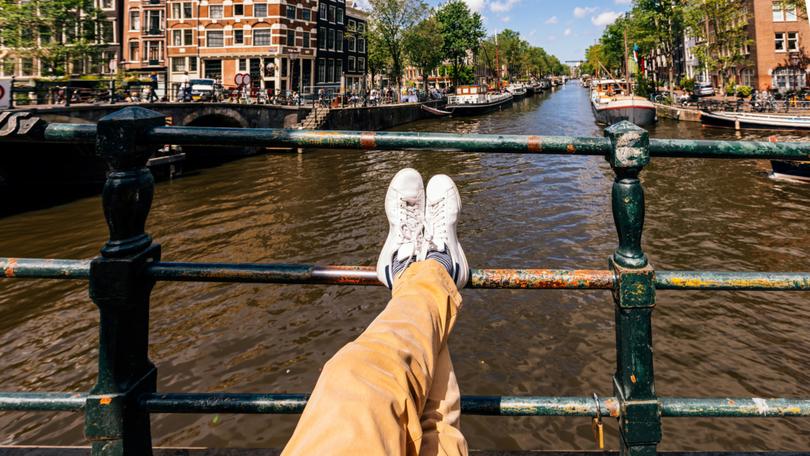The art of doing nothing: Why the Dutch are the world’s happiest people
Ever wondered why the Dutch are the world’s happiest people? It could have something to do with niksen, the art of doing nothing.

I was born in Poland and grew up in Germany, but my family and I have been living in the Netherlands for the last 14 years.
When I first discovered the concept of niksen, or the Dutch art of doing nothing, I was fascinated. I even wrote a book about it. When I applied it to my own life, my perspective about happiness shifted in a significant way.
I believe niksen is one of the reasons why the Dutch are consistently ranked as some of the happiest people in the world. Niksen might seem selfish or boring at first glance, but it’s actually a service to you and your community.
Sign up to The Nightly's newsletters.
Get the first look at the digital newspaper, curated daily stories and breaking headlines delivered to your inbox.
By continuing you agree to our Terms and Privacy Policy.Here’s how it make it work for you.
1. If you’re doing nothing, own it
When someone asks you what you’re doing during your niksen time, simply respond, “Nothing.”
Be unapologetic about taking breaks or holidays. Think of niksen not as a sign of laziness, but as an important life skill that might help you regain some composure, find calm, and prevent burnout.
Tony Crabbe, the author of Busy, says resisting cultural pressures is easier when done with other niksen-minded people.
Or you can do what my mum does and hang a sign on your office door that reads: “I bite.” (She doesn’t bite, but it’s clear that she doesn’t want to be disturbed.)
2. Work and rest according to your natural rhythm
People have different chronotypes, which means they need to sleep and work at different times of the day to achieve maximum productivity. Some of us are at our best in the morning, while others feel the most productive in the afternoon.
“Every one of us should figure out when we’re at our most creative. Most productive. And niksen is part of this,” says Dutch psychoanalyst Manfred Kets de Vries. He suggests drawing a diagram like the one below:
Then look at your activities, tasks, and obligations and decide where they fit on the diagram.
3. Do nothing, together
I always thought of niksen as something you do alone in your home, by yourself. But those sweet nothing moments can become more special when they are shared.
For many parents, the best thing in the world can be reading to their children or playing with them. To me, it’s hugging. When I’m in a great mood, I’ll ask, “Who wants a hug?”
And if I’m lucky, at least one of my three kids will be willing to put their little arms around me and give me a cuddle. Sometimes, I’ll lie down with them on the floor and do nothing but put my arms around them.
When the kids are in bed, my husband and I often watch a TV series together. I’m usually snuggled into my husband because he is soft and warm, and I often think that the series is secondary. I’m simply niksen-ing up against him.
4. Just be normal
In the Netherlands, people tend to steer clear of intense emotional outbursts, or what they consider to be overly dramatic behaviour. It’s also generally not acceptable to complain or brag about working all the time.
This attitude stems from a famous Dutch saying, “doe normal, dat is al gek genoeg,” which means “just be normal, that’s already crazy enough.”
Meaning, that if you put in too many hours or too much effort into your job, you likely won’t get any accolades. Instead, you might be on the receiving end of some eye-rolls and sighs, while also being told to just be normal, go home, and take some time for yourself.
Olga Mecking is a writer, journalist, and translator based in the Netherlands. She is the author of Niksen: Embracing the Dutch Art of Doing Nothing″ and a regular contributor to The New York Times, The Guardian, The BBC, The Atlantic and other publications.
